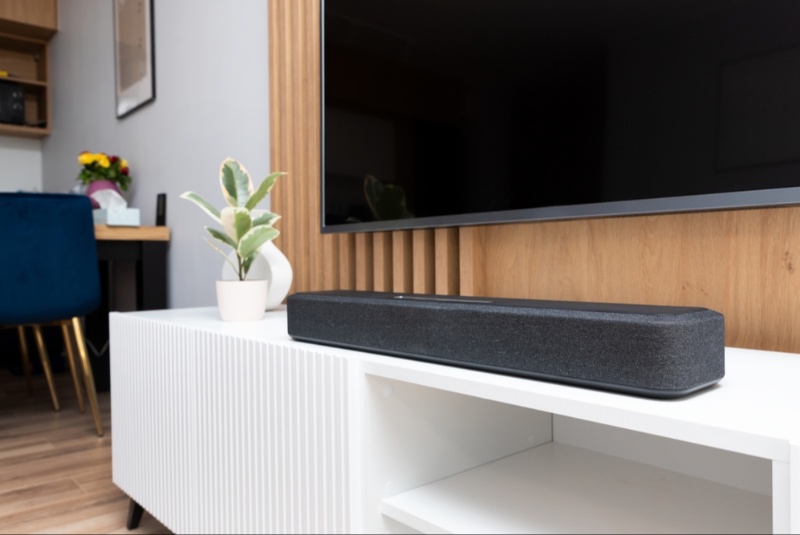In today's era of smart homes and advanced technology, the humble television has undergone a significant transformation. As screens have become thinner and picture quality sharper, there's been a compromise on one essential feature: sound. Thin screens mean limited space for in-built speakers, often resulting in compromised audio quality. Enter the soundbar, a nifty gadget designed to enhance your TV-watching experience.
If you're contemplating buying a soundbar, you're not alone. The market is brimming with choices, and navigating it can be daunting. This comprehensive guide will walk you through the crucial factors to consider to ensure you're making a smart choice.
1. Understand Your Space:
Before diving into features and brands, assess the room where you'll be setting up the soundbar.
- Size Matters: If you have a spacious living room, you might consider a longer soundbar or one with external satellite speakers to fill the space with sound. For smaller rooms, a simple, compact soundbar should suffice.
- Placement: Decide whether you'll be wall-mounting the soundbar or placing it on a table. Ensure it doesn't obstruct the TV screen.
2. Decide on Channels:
Soundbars come with various channel numbers like 2.0, 3.1, 5.1, and so forth. The first digit represents the number of channels or distinct sound sources. The second digit denotes if there's a subwoofer included (1) or not (0).
For instance, a 2.0 soundbar has two channels with no subwoofer, while a 5.1 soundbar comes with five channels and a separate subwoofer. If you're a movie buff or gaming enthusiast, a soundbar with more channels will provide a richer surround sound experience.

3. Connectivity:
Consider how you want to connect your soundbar to your TV or other devices.
- HDMI: This is the most common and preferred method, especially if you have a newer TV. An HDMI ARC (Audio Return Channel) connection allows you to use one remote for both TV and soundbar.
- Bluetooth/Wi-Fi: For those who like to stream music from mobile devices, ensure your soundbar has Bluetooth or Wi-Fi capability.
- Other Ports: Depending on your needs, look for soundbars with additional ports like USB, 3.5mm jack, or optical inputs.
4. Consider Smart Features:
As with most modern gadgets, soundbars aren't just about sound anymore. Many come with integrated voice assistants like Amazon Alexa or Google Assistant. If you're into smart homes, a soundbar with these features will seamlessly integrate with your existing setup.
5. Dolby Atmos:
Dolby Atmos is a technology that elevates your sound experience by creating a three-dimensional sound stage. If you love immersing yourself in movies, investing in a Dolby Atmos-enabled soundbar might be worth it.
6. Price Point:
Soundbars range from affordable to exorbitantly priced. It's essential to set a budget but remember that the most expensive doesn't always mean the best for your needs. Sometimes, mid-range soundbars offer the best value for money.
7. Brand and Reviews:
While brand reputation can be a guide, user reviews provide real-world insights. Before purchasing, take a moment to read online reviews, focusing on those that seem to match your intended usage and setup.
8. Additional Features to Consider:
- Remote Control: Some soundbars come with dedicated remote controls, while others might rely on your TV remote or a mobile app.
- Night Mode: This feature reduces the volume of loud noises (like explosions) while amplifying softer ones, perfect for nighttime viewing.
- Room Calibration: Some high-end soundbars can analyze your room's acoustics and adjust their sound output accordingly.
Buying a soundbar is an investment in enhancing your audiovisual experience. Whether it's for movies, music, gaming, or regular TV shows, the right soundbar can make all the difference. By understanding your needs, prioritizing features, and doing thorough research, you'll be well on your way to making a sound choice.




